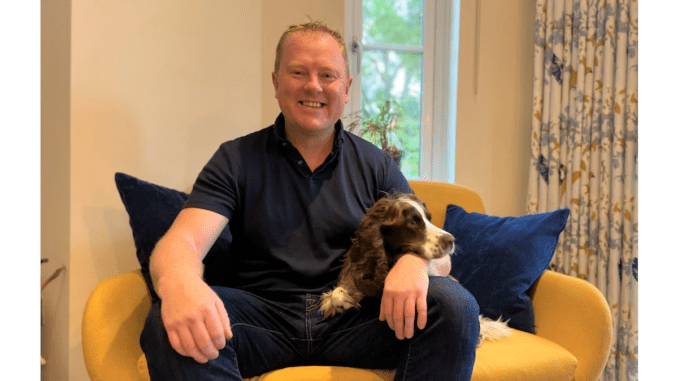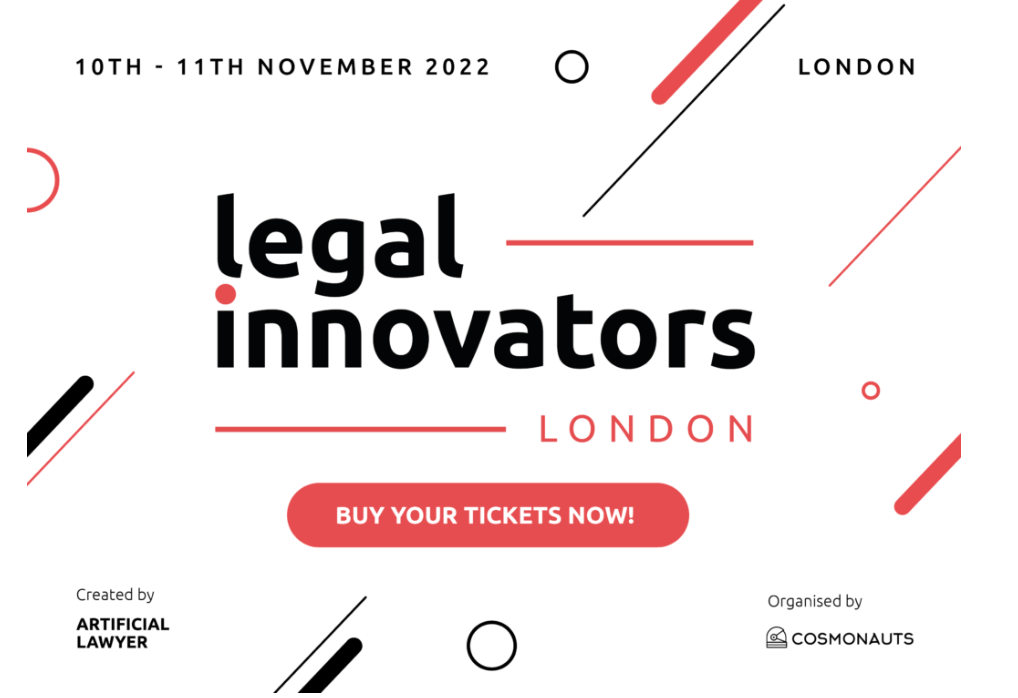
This week’s Legal Innovator Profile is of Pete Lee, Partner at Simmons & Simmons and CEO of Simmons Wavelength, the firm’s legal engineering and data science group.
When did you first hear the term ‘legal tech’ and what did you think at the time?
20 years ago this coming March, I was deployed as an infantry soldier during the invasion of Iraq. Up until that point, I hadn’t thought much about the law other than when I was trying to keep colleagues out of trouble in Germany where we were usually based. But the war opened my eyes – not only were people questioning the legality of the whole thing, it was chaos on the ground.
As the fighting and subsequent ‘peace building’ ensued, it became clear that the fabric of Iraqi society had quickly broken down and had to be rebuilt. For a time, I’d say it was lawless. I remember thinking how important the rule of law is as the ‘glue’ that holds everything together.
Over the next couple of years, I started reading about law and its role in society. Around about that time I picked up Richard Susskind’s ‘The Future of Law’ and think that would have been when I first heard the phrase ‘legal technology’ in the context of making the law more accessible, efficient and scalable. I liked the concept because I’d been a scientist at university and we used tools and data techniques to deliver our work efficiently. I eventually went back to college and became a solicitor. I should have stopped there but I have an expensive habit of starting new businesses.
I kept coming back to this idea of applying tech to transform my practice because the way we worked seemed very traditional with lots of potential for improvement. My first (unsuccessful) attempt in legal tech was a SaaS data escrow start-up I co-founded off the side of my desk whilst working as an associate in a City firm. Something I wouldn’t recommended if you value your sleep.
What is your role now?
I’m a Partner at Simmons & Simmons, where I work within the firm’s Solutions group and run our legal engineering business. We deliver technology, consulting, design and data science solutions to clients. Our core business lines include making legal teams and processes more efficient (legal operations), accelerating legal tasks using supervised machine learning tools and data science techniques (legal data engineering), and presenting information and legal work in new or more consumable ways (legal design).
I’m responsible for an amazing and diverse team, which includes overseeing growth, people management, P&L and strategy. I also run Simmons’ Cambridge office and sit on the firm’s UK Management Committee.
Why did you move into this field, (if this is not the only field you’ve worked in)?
In 2016, I left my lovely secure job and co-founded another start-up called Wavelength with the large-brained Drew Winlaw (now also a Partner and Simmons’ Chief Legal Engineer). I think we were fortunate to spot a gap in the market around the use of technology, data science and legal design to improve how people interact with the law. Wavelength was the first regulated Legal Engineering business and it was very exciting. There were a bunch of new, friendly and open-minded legal tech businesses that started around about the same time (including the Artificial Lawyer, if I remember correctly!) and it was brilliant fun.
We also had some great advisors, like the incomparable Catherine Bamford who was one of Wavelength’s non-executive directors. We boot-strapped Wavelength but grew fairly rapidly in the incubators around Cambridge and London, and in 2019 were acquired by Simmons & Simmons, a large international law firm.
What is the most rewarding aspect of your job?
I’ve come to realise that I care about developing successful, happy teams and I like supporting talented people to flourish, which I try to do every day. I also love building businesses and solving complex business challenges. These days we work on some wonderful projects with impressive clients from around the world.
Sometimes we’re pushing the boundaries and doing things for the first time ever in the legal sector. This can feel a bit scary, even when you have a great team and solid methodologies you trust, but I love it – I couldn’t imagine the drudgery of doing the same mundane manual task over and over again for years… imagine being a conveyancing lawyer – yikes!
If you looked into a crystal ball, how much do you think the everyday practice of law will change in the next five to ten years?
I hope it will become normal for client delivery teams in our sector to be multidisciplinary – with lawyers sitting alongside and on a par with tech, data, design, process, project management and other experts to deliver beautiful solutions to clients.
If you had one gripe about legal tech companies what would it be?
It’s always a shame when companies build and invest in a product before doing proper market validation and testing to check that people actually want to buy it. It’s such an easy trap to fall into (I’ve done it myself), before you know it you’re hurtling down a costly road to nowhere.
People talk about the total addressable market for legal tech running into many millions, but in reality the pool of buyers for a particular legal tech product is relatively small so we have to be really focused and make good choices in this industry.
If you had one thing you’d really like to applaud legal tech companies for, what would it be?
Being relentlessly positive about trying to change the way we deliver and access legal services.
And finally, what advice would you give to anyone wanting to get into this field?
Get in touch, we’re hiring!
Thanks, Pete…and the excellent dog!
(And there are several more Profiles currently in the works from a wide range of people from across the legal innovation space, check out AL for more to come.)
—
Legal Innovators UK Conference – November 10 + 11, London
If you found the topics explored in this profile interesting, then come along to the Legal Innovators UK Conference in London, 10 and 11 November.
For information and tickets see here.
